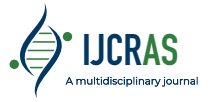| Title: SELF-EFFICACY ANTECEDENTS IN SHAPING CAREER MATURITY |
|
Author: Tia Rahmania |
|
Abstract: This study aims to determine the effect of self-efficacy, locus of control, and family social support on college students with the antecedent self-efficacy approach. This idea was tested using a quantitative methodology in this study. The research instrument was a questionnaire filled out by the respondents. The participants in this study were college students in Banten Province, Indonesia. For this study, 142 participants were selected using proportional stratified sampling, and data were analyzed using a structural equation model (SEM). The findings of this study are that performance experience, other people’s experiences and emotional states are supporting factors that statistically have a positive and significant effect on self-efficacy. Still, social persuasion is not a supporting factor for increasing self-efficacy. In addition, self-efficacy impacts the locus of control but does not affect increasing family social support. Then locus of control and family social support positively and significantly increase student career maturity. These findings contribute as additional literature for further research that self-efficacy and its antecedents can influence locus of control, which has implications for improving career maturity in college students in Indonesia. |
|
Keywords: self-efficacy, locus of control, family social support, career maturity |
| PDF Download |
International Journal of Current Research and Applied Studies
An open access multidisciplinary journal, ISSN 2583-6781
